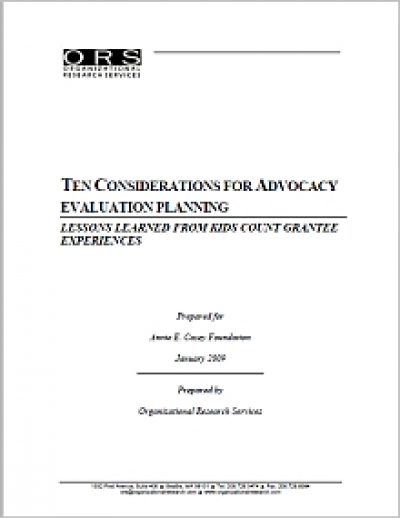No 1-Stop Shopping
There are different kinds of evaluation approaches that meet different purposes.

For groups involved in advocacy and policy change work, this document presents 10 considerations on how to include evaluation in their everyday work. The tips include the theoretical steps to take in evaluating advocate and policy work, and how to apply this framework to their daily work. It was written for KIDS COUNT grantees and other policy advocates.
Policy advocacy evaluation work will often happen in stages or sequences, with some activities happening ahead of others. It is important to consider when strategies will be occurring to make good decisions about what data to collect, when that information would be available and when it is best to collect. It is also important to be realistic about the likely timeframes for achievement of certain outcomes.
We hope you'll find value in this report. We’d love to get a little information from you, which we'll use to notify you about relevant new resources.